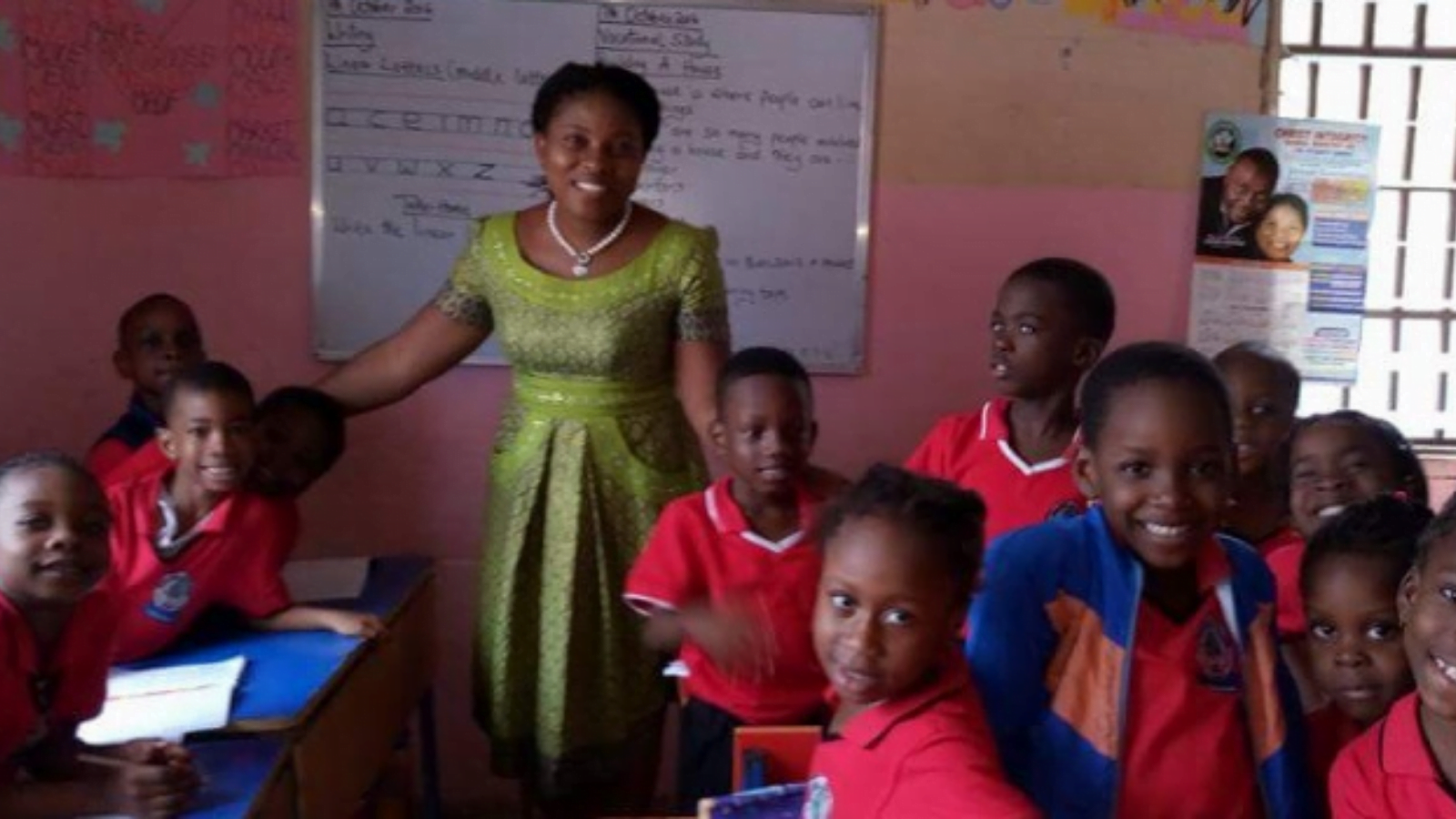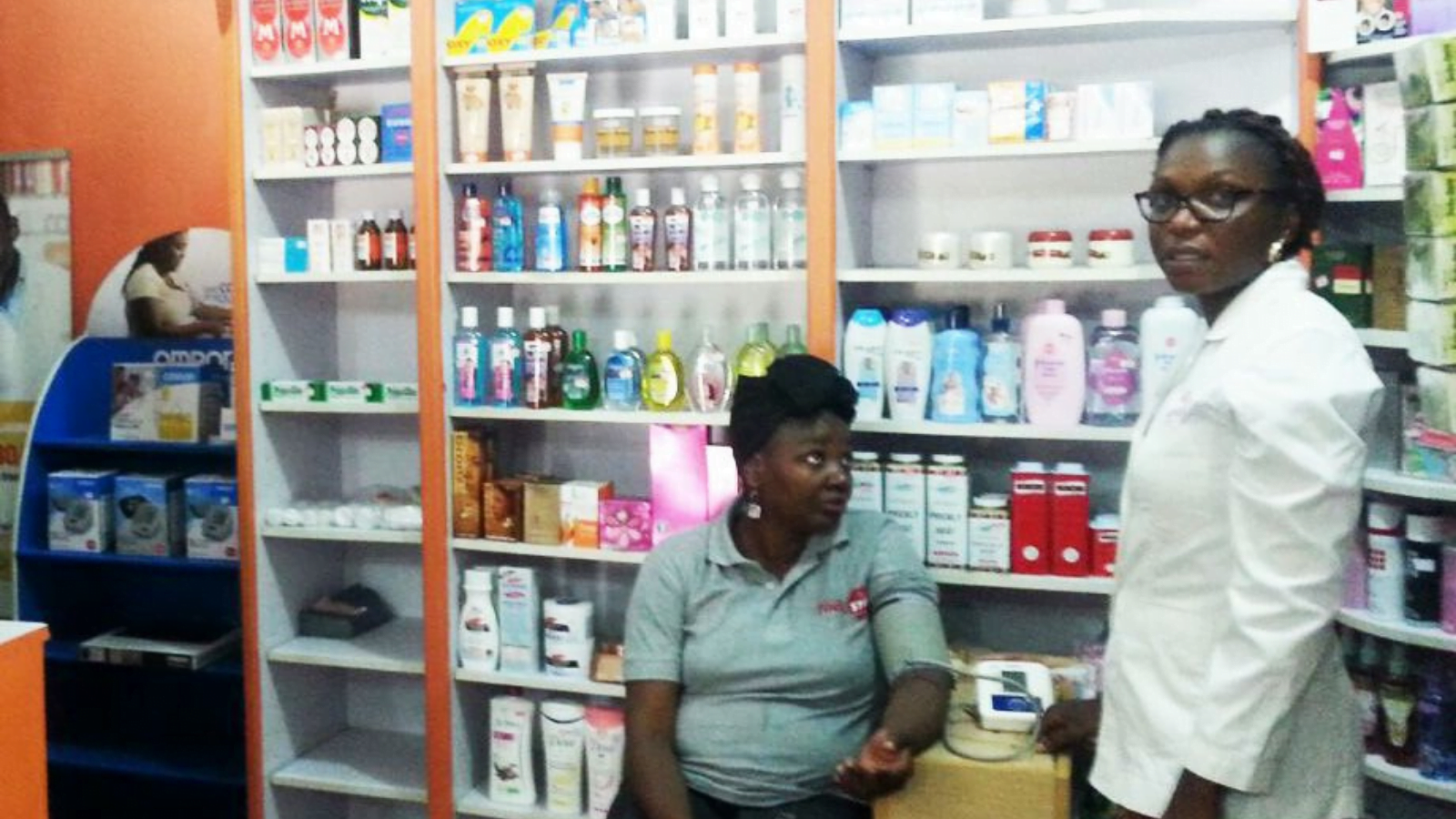On the road to growth – stories of entrepreneurial journeys
Two women entrepreneurs share their experiences.

Access to capital is a major struggle for countless women entrepreneurs across the world. Our Road to Women’s Business Growth project in Nigeria is aiming to change that.
Working in partnership with the ExxonMobil Foundation, the Enterprise Development Centre of Pan-Atlantic University, Emerging360 and Diamond Bank, we are supporting 500 women entrepreneurs to boost their financial literacy skills and enhance their access to capital. Our Road to Growth training course is delivered via a ‘blended learning’ approach, partly in traditional classroom settings, and partly through online learning modules which allow women to learn at their own pace and convenience.
Read on to find out how the project helped set Chioma and Mayowa on a road to growth.
Chioma Omoma-Edosa,
Founder and Principal of Nobleseed Montessori School

Chioma is the Principal at the Nobleseed Montessori School in Owerri, the capital of Imo State in Nigeria. And she is on a personal mission to give children the education they need to succeed.
While Chioma was studying for her Postgraduate Diploma in Education, she became determined to set up a school that would provide quality education for primary school students. Alongside her studies, Chioma worked in events management to raise the capital to start her school. In 2007 she was finally able to open the gates to Nobleseed Montessori School.
Chioma’s school receives no government funding and is instead entirely supported by student fees. For several years Chioma ran her school with very little business experience or financial acumen. But that didn’t limit her ambition. She applied for the Road to Women’s Business Growth project, eager to fill in the gaps in her knowledge. Her main aim was to grow the school and reach more students.
The training taught Chioma to manage her accounts properly. Rather than just monitoring income and expenditure, she learnt how to track expenses, assets and liabilities. Armed with this new knowledge, Chioma passed on her skills by giving her teachers a lesson in budget monitoring.
Once she began to get proper budgets from her departments, Chioma started to identify ways she could make savings. For example, the school allowed children to enrol throughout the year which meant that the number of students would increase during the academic period. Predicting this, the school used to overestimate the number of books it would need. Chioma realised that this approach was tying up funds in assets that often went unused. So she changed the policy, instead basing her orders for books on the number of current students. If new children started, new books would be added, but, by not over-ordering, Chioma successfully managed to reduce wasted expenditure.
Given that school books are fairly costly, Chioma soon started to make significant savings. This allowed her to invest in a new school bus. Previously, the school had just one bus that could only do one route. Children who didn’t live along that route would struggle to get to school. A new bus, following a new route, meant that more children could attend school.
Chioma’s ambition to offer education to larger numbers of children was starting to become a reality. Over the 2015/16 school year, the number of students at Nobleseed Montessori School has increased by 30%.
Chioma’s next challenge is space: she now needs to expand her premises to accommodate the growing numbers of students. As this is a cost that can’t be covered by savings on books, Chioma plans to apply for a bank loan.
This is a big step for her. Before the training, Chioma was wary of applying for a loan because she worried that she wouldn’t be able to repay it. However, as a result of the training, Chioma better understands the finances of her business and is able to make more accurate budget forecasts. Now, she has confidence in her ability to work out a repayment plan.
As she searches for the right loan, Chioma is continuing to focus on growing her school, making sure that even more children in Owerri are able to learn crucial skills in literacy and numeracy. Chioma told us: “Now I’m finally succeeding in my business, it will tell every other woman who has a passion for entrepreneurship that they can succeed too”.
Mayowa Babalola (pictured right)
Founder of D-Lite Pharmacy

Before she became her own boss, Mayowa was a manager at a pharmacy. But, as a trained and experienced pharmacist, Mayowa harboured ambitions to run her own dispensary. After saving money, and persuading her husband to invest in her business, Mayowa opened D-Lite Pharmacy in Ikeja, the capital of Lagos State, in 2009.
In the early days, Mayowa used her personal bank account for her business finances. After some advice from a friend, she opened a separate account for the pharmacy. Once the income and expenditure of the business were isolated she realised it was not bringing in enough cash to pay her suppliers on time.
Mayowa applied for a bank loan to inject some additional money into her business. However, she was unable to satisfy the bank’s collateral demands. Mayowa didn’t own land or property, and she didn’t have equipment or stock of sufficient value to satisfy the bank that they could recoup the money if she defaulted on the loan.
Undeterred, Mayowa turned to a micro-finance institution and secured a loan which allowed her to invest in more stock. However, Mayowa noticed that the increase in her profits was soon eaten up by the interest she was paying on the loan.
It was around this time that Mayowa came across our Road to Women’s Business Growth project. Keen to improve her financial management skills and resolve her ongoing cash flow issues, she applied to join.
Mayowa made three key changes to her business as a result of the training.
First, she renegotiated payment dates with her suppliers. Instead of paying all her suppliers at different times throughout the month, Mayowa convinced the majority to accept payment at the end of the month. This improved her cash flow significantly. Mayowa’s negotiation skills shouldn’t be underestimated. In most cases she extended the amount of time between receiving deliveries and paying for stock – at a time when the Nigerian economy was in recession and businesses were trying to get as close as they could to ‘cash-on-delivery’.
The second change was the introduction of a cost-saving plan. A key part of this was to save money on electricity bills. In a pharmacy, it is crucial to keep medication at the right temperature so that it remains effective. Mayowa could not afford to lose electricity – if that happened, she would lose her stock. Since the government energy supply was unreliable the pharmacy had an emergency generator, but the cost of the petrol needed to run the generator was extortionate. Mayowa put aside some of her profit to invest in a battery-operated generator that she could charge up on the central supply – a much cheaper alternative.
The third change was that Mayowa secured a bank loan, with much lower interest rates than her previous microfinance loan. After being introduced to representatives from Diamond Bank at the project’s training sessions, she set about making a loan application. By this stage, her accounts looked healthy. In addition, the training had also taught her to make cash projections so she could put together a robust repayment plan. While she still didn’t have collateral, the information she was able to provide resulted in the bank lending her 1.6 million naira (approximately $5,000). Mayowa is using this loan to set up a second branch of her pharmacy in Warewa in Ogun State. She has secured a new building, which is currently being refitted, and has also employed an additional part-time pharmacist. Now that her business finances are healthy, Mayowa’s services can keep the community healthy too.
